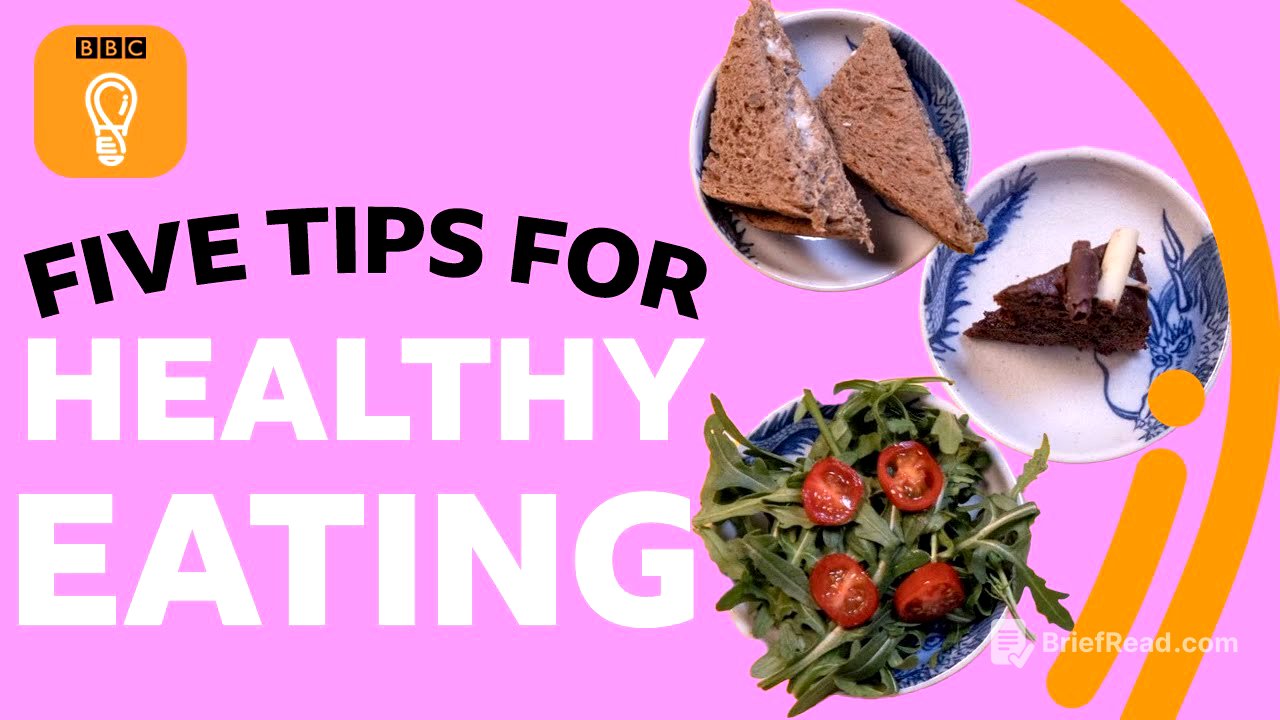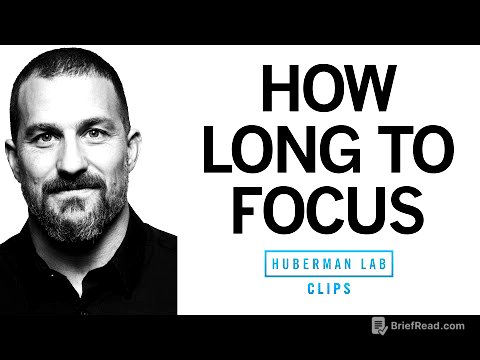TLDR;
This video from BBC Ideas offers five simple, trustworthy tips for healthy eating amidst the overwhelming amount of dietary advice available. It covers the importance of when you eat certain foods, the impact of food processing, the significance of the gut microbiome, and the emerging field of personalised nutrition, while reinforcing the importance of eating whole, unprocessed foods and a diverse diet.
- Eating treats after meals helps control glucose spikes.
- Prioritise whole, unprocessed foods to maximise the thermic effect of food.
- Cultivate a healthy gut microbiome by eating a wide variety of foods.
- Limit ultra-processed foods by checking for unfamiliar ingredients.
- While personalised nutrition is promising, core dietary advice still applies to everyone.
Tip 1: The Order You Eat Matters [0:25]
Eating a treat like chocolate cake after a meal is better than eating it on its own because it helps control glucose spikes. When you consume carbohydrates or sweet foods, your blood glucose levels rise. A rapid and sharp increase is followed by a crash, leading to tiredness, irritability, and renewed hunger. To manage these spikes, you can exercise after eating or consume foods high in fibre, such as vegetables or porridge oats. The order in which you eat your food also plays a role; eating fats, proteins, or vegetables before carb-heavy foods like white rice or pasta can flatten the glucose curve because having something in your stomach first slows down how quickly the carbohydrates reach the small intestine for digestion.
Tip 2: Not All Calories Are Equal [1:37]
Counting calories is difficult and often inaccurate, with most people underestimating their calorie intake by about 25%. More importantly, not all calories behave the same way inside your body. Foods in their natural state, such as nuts, fruit, vegetables, and fish, require more energy to digest due to the thermic effect of food. This means that high-calorie foods like nuts can still be a healthy choice because the body uses a significant amount of energy to digest them.
Tip 3: Look After Your Gut [2:19]
The gut microbiome, a vast ecosystem in the digestive tract containing trillions of bacteria, fungi, viruses, and cells, can weigh up to 2 kilos and has a profound impact on physical and potentially mental health. To maintain a healthy microbiome, it's important to eat a wide range of different foods. Seeds, fruits, vegetables, the yoghurt drink kefir, and other fermented foods are particularly beneficial for gut health.
Tip 4: Avoid Ultra-Processed Foods [3:04]
In the UK, 57% of calories consumed come from ultra-processed foods (UPF), and this figure is even higher for children. UPFs include pizza, ready meals, and biscuits, as well as seemingly healthy options like most supermarket breads, many breakfast cereals, and milk and meat substitutes. Since UPFs are not labelled, a good rule of thumb is to look for ingredients you don't recognise, such as emulsifiers, sweeteners, colourings, and preservatives.
Tip 5: Personalised Nutrition [3:49]
Personalised nutrition is an emerging approach where food choices are tailored to individual needs. Research has shown that blood glucose levels can vary widely among individuals after eating the same food, potentially due to differences in their gut microbiomes. While the idea is to tailor food choices to the specific needs of individual bodies, nutritionists emphasise that core messages still apply across the board. For a healthy diet, aim for foods close to their natural state, such as an orange instead of orange juice, brown rice instead of white rice, and dark chocolate instead of milk chocolate. Aim for a wide variety of foods and try to avoid eating too many ingredients you don't recognise.









